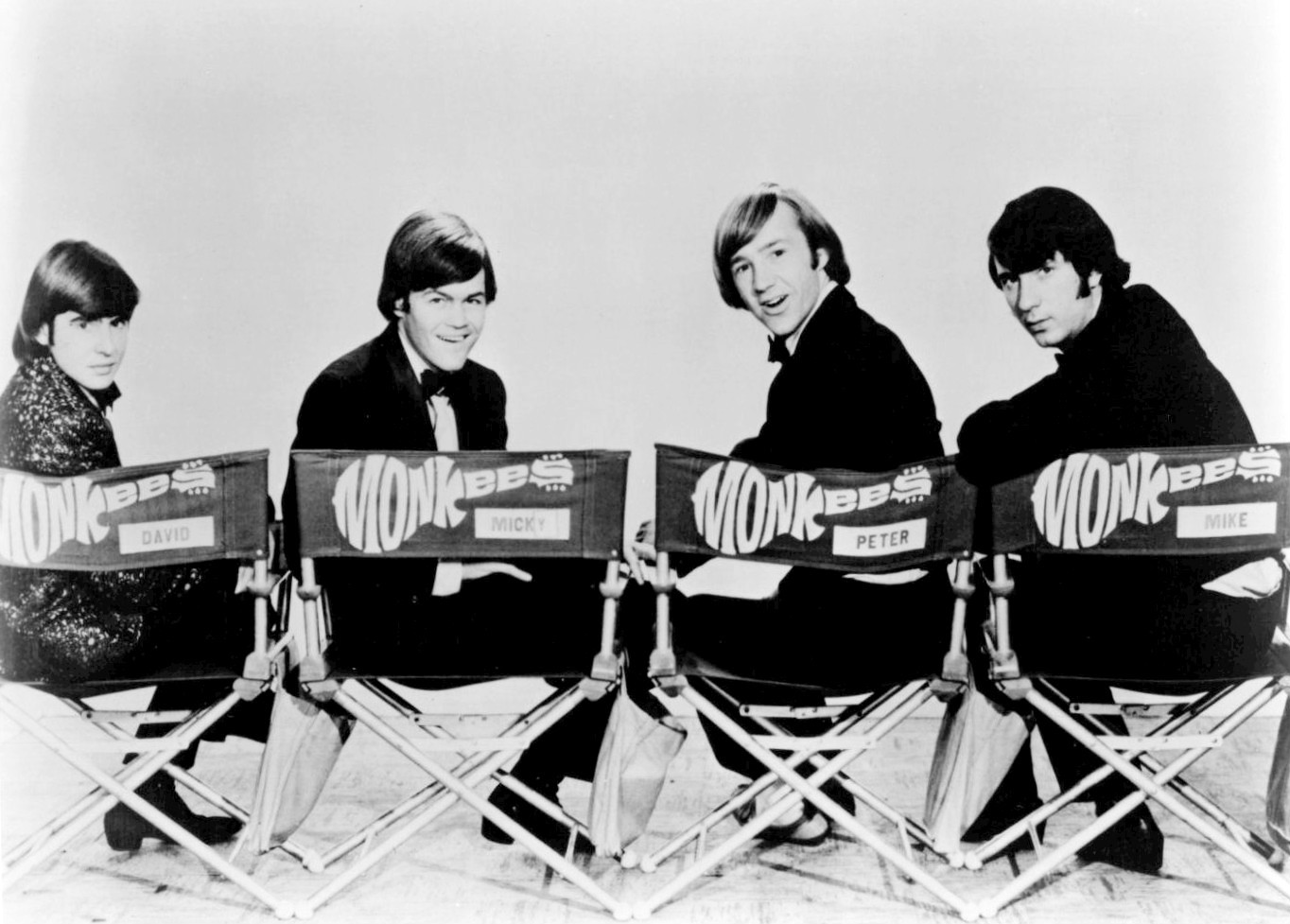|
Propinquity
In social psychology, propinquity (; from Latin ''propinquitas'', "nearness") is one of the main factors leading to interpersonal attraction. It refers to the physical or psychological proximity between people. Propinquity can mean physical proximity, a kinship between people, or a similarity in nature between things (" like-attracts-like"). Two people living on the same floor of a building, for example, have a higher propinquity than those living on different floors, just as two people with similar political beliefs possess a higher propinquity than those whose beliefs strongly differ. ''Propinquity'' is also one of the factors, set out by Jeremy Bentham, used to measure the amount of (utilitarian) pleasure in a method known as felicific calculus. Propinquity effect The propinquity effect is the tendency for people to form friendships or romantic relationships with those whom they encounter often, forming a bond between subject and friend. Workplace interactions are frequent an ... [...More Info...] [...Related Items...] OR: [Wikipedia] [Google] [Baidu] |
Leon Festinger
Leon Festinger (8 May 1919 – 11 February 1989) was an American social psychologist who originated the theory of cognitive dissonance and social comparison theory. The rejection of the previously dominant behaviorist view of social psychology by demonstrating the inadequacy of stimulus-response conditioning accounts of human behavior is largely attributed to his theories and research. Festinger is also credited with advancing the use of laboratory experimentation in social psychology, although he simultaneously stressed the importance of studying real-life situations, a principle he practiced when personally infiltrating a doomsday cult. He is also known in social network theory for the proximity effect (or propinquity). Festinger studied psychology under Kurt Lewin, an important figure in modern social psychology, at the University of Iowa, graduating in 1941; however, he did not develop an interest in social psychology until after joining the faculty at Lewin's Resear ... [...More Info...] [...Related Items...] OR: [Wikipedia] [Google] [Baidu] |
Interpersonal Attraction
Interpersonal attraction, as a part of social psychology, is the study of the attraction between people which leads to the development of platonic or romantic relationships. It is distinct from perceptions such as physical attractiveness, and involves views of ''what is'' and ''what is not'' considered beautiful or attractive. Within the study of social psychology, interpersonal attraction is related to how much one likes or dislikes another person. It can be viewed as a force acting between two people that tends to draw them together and to resist their separation. When measuring interpersonal attraction, one must refer to the qualities of the attracted and those of the attractor to achieve predictive accuracy. It is suggested that to determine attraction, both the personalities and the situation must be taken into account. Measurement In social psychology, interpersonal attraction is most-frequently measured using the Interpersonal Attraction Judgment Scale developed by Donn ... [...More Info...] [...Related Items...] OR: [Wikipedia] [Google] [Baidu] |
Utilitarian
In ethical philosophy, utilitarianism is a family of normative ethical theories that prescribe actions that maximize happiness and well-being for the affected individuals. In other words, utilitarian ideas encourage actions that lead to the greatest good for the greatest number. Although different varieties of utilitarianism admit different characterizations, the basic idea that underpins them all is, in some sense, to maximize utility, which is often defined in terms of well-being or related concepts. For instance, Jeremy Bentham, the founder of utilitarianism, described ''utility'' as the capacity of actions or objects to produce benefits, such as pleasure, happiness, and good, or to prevent harm, such as pain and unhappiness, to those affected. Utilitarianism is a version of consequentialism, which states that the consequences of any action are the only standard of right and wrong. Unlike other forms of consequentialism, such as egoism and altruism, egalitarian utilita ... [...More Info...] [...Related Items...] OR: [Wikipedia] [Google] [Baidu] |
Zelda Gilroy
Zelda K. Gilroy, portrayed by Sheila Kuehl, is a character from the American sitcom ''The Many Loves of Dobie Gillis'', which originally aired on CBS from 1959 to 1963. A teenage girl who was bright in academics and excelled in athletics, Zelda was smitten with the handsome, clean-cut teenager Dobie Gillis, played by Dwayne Hickman, who had his romantic sights set on more popular girls. Most of these, however, shunned him for various reasons. Zelda was always there for Dobie and his friend Maynard G. Krebs, portrayed by Bob Denver. History The character originated not on television, but in "Love is a Science", a Dobie Gillis short story written by humorist Max Shulman and included in his 1959 Dobie Gillis short-story collection ''I Was a Teenage Dwarf''. "Love is a Science" was one of several of the Shulman short stories adapted by the author for the ''Dobie Gillis'' television program. Originally intended to play Zelda as a one-shot in the TV adaptation of "Love is a Science" o ... [...More Info...] [...Related Items...] OR: [Wikipedia] [Google] [Baidu] |
The Many Loves Of Dobie Gillis
''The Many Loves of Dobie Gillis'' (also known as simply ''Dobie Gillis'' or ''Max Shulmans Dobie Gillis'' in later seasons and in syndication) is an American sitcom starring Dwayne Hickman that aired on CBS from September 29, 1959, to June 5, 1963. The series was adapted from the Dobie Gillis short stories written by Max Shulman since 1945 and first collected in 1951 under the same title as the subsequent TV series, which drew directly on the stories in some scripts. Shulman also wrote a feature-film adaptation of his Dobie Gillis stories for Metro-Goldwyn-Mayer in 1953, titled ''The Affairs of Dobie Gillis'', which featured Bobby Van in the title role. Hickman in ''Dobie Gillis'' was among the first leads to play a teenager on an American television program. ''Dobie Gillis'' broke ground by depicting elements of the contemporaneous counterculture, particularly the Beat Generation, primarily embodied in a stereotypical version of the "beatnik," mainly in the character of Maynar ... [...More Info...] [...Related Items...] OR: [Wikipedia] [Google] [Baidu] |
Absalom, Absalom!
''Absalom, Absalom!'' is a Southern Gothic novel by the American author William Faulkner, first published in 1936. Taking place before, during, and after the American Civil War, it focuses on the rise and fall of Thomas Sutpen, a plantation owner in the American South, as told by several unreliable narrators many years later. ''Absalom, Absalom!'', along with '' The Sound and the Fury'', helped Faulkner win the Nobel Prize in Literature for the year 1949. In 2009, a panel of judges called ''Absalom, Absalom!'' the best Southern novel of all time. Plot summary ''Absalom, Absalom!'' details the rise and fall of Thomas Sutpen, a white man born into poverty in western Virginia who moves to Mississippi with the dual aims of gaining wealth and becoming a powerful family patriarch. The story is told entirely in flashbacks narrated mostly by Quentin Compson to his roommate at Harvard College, Shreve, who frequently contributes his own suggestions and surmises. The narration of Rosa ... [...More Info...] [...Related Items...] OR: [Wikipedia] [Google] [Baidu] |
William Faulkner
William Cuthbert Faulkner (; September 25, 1897 – July 6, 1962) was an American writer. He is best known for William Faulkner bibliography, his novels and short stories set in the fictional Yoknapatawpha County, Mississippi, a stand-in for Lafayette County, Mississippi, Lafayette County where he spent most of his life. A Nobel Prize in Literature, Nobel laureate, Faulkner is one of the most celebrated writers of American literature, often considered the greatest writer of Southern United States literature, Southern literature and regarded as one of the most influential and important writers of the 20th century. Faulkner was born in New Albany, Mississippi, and raised in Oxford, Mississippi. During World War I, he joined the Royal Canadian Air Force, but did not serve in combat. Returning to Oxford, he attended the University of Mississippi for three semesters before dropping out. He moved to New Orleans, where he wrote his first novel ''Soldiers' Pay'' (1925). He went back ... [...More Info...] [...Related Items...] OR: [Wikipedia] [Google] [Baidu] |
Diamonds Are Forever (novel)
''Diamonds Are Forever'' is the fourth novel by the British author Ian Fleming to feature his fictional British Secret Service agent James Bond. Fleming wrote the story at his Goldeneye estate in Jamaica, inspired by a '' Sunday Times'' article on diamond smuggling. The book was first published by Jonathan Cape in the United Kingdom on 26 March 1956. The story centres on Bond's investigation of a diamond-smuggling operation that originates in the mines of Sierra Leone and runs to Las Vegas. Along the way Bond meets and falls in love with one of the members of the smuggling gang, Tiffany Case. Much of Fleming's background research formed the basis for his non-fiction 1957 book '' The Diamond Smugglers''. ''Diamonds Are Forever'' deals with international travel, marriage and the transitory nature of life. As with Fleming's previous novels, ''Diamonds Are Forever'' received broadly positive reviews at the time of publication. The story was serialised in the ''Daily Express'' n ... [...More Info...] [...Related Items...] OR: [Wikipedia] [Google] [Baidu] |
James Bond
The ''James Bond'' franchise focuses on James Bond (literary character), the titular character, a fictional Secret Intelligence Service, British Secret Service agent created in 1953 by writer Ian Fleming, who featured him in twelve novels and two short-story collections. Since Fleming's death in 1964, eight other authors have written authorised Bond novels or novelisations: Kingsley Amis, Christopher Wood (writer), Christopher Wood, John Gardner (British writer), John Gardner, Raymond Benson, Sebastian Faulks, Jeffery Deaver, William Boyd (writer), William Boyd, Anthony Horowitz and Charlie Higson. The latest novel is ''On His Majesty's Secret Service'' by Charlie Higson, published in May 2023. Additionally, Charlie Higson wrote a series on Young Bond, a young James Bond, and Samantha Weinberg, Kate Westbrook wrote three novels based on the The Moneypenny Diaries, diaries of a recurring series character, Miss Moneypenny, Moneypenny. The character—also known by the code nu ... [...More Info...] [...Related Items...] OR: [Wikipedia] [Google] [Baidu] |
The Monkees
The Monkees were an American pop rock band formed in Los Angeles in the mid-1960s. The band consisted of Micky Dolenz, Davy Jones (musician), Davy Jones, Michael Nesmith, and Peter Tork. Spurred by the success of ''The Monkees (TV series), The Monkees'' television series, they were one of the most successful bands of the late 1960s. The band produced four chart-topping albums and three chart-topping songs ("Last Train to Clarksville", "I'm a Believer", and "Daydream Believer"). The Monkees were originally a fictional band created for the NBC television sitcom ''The Monkees''. Dolenz, Jones, Nesmith and Tork were cast to portray members of a band in the sitcom. Music credited to the Monkees appeared in the sitcom and was released on LPs and singles beginning in 1966, and the sitcom aired from 1966 to 1968. At first, the band members' musical contributions were primarily limited to lead vocals and the occasional composition, with the remaining music provided by professional song ... [...More Info...] [...Related Items...] OR: [Wikipedia] [Google] [Baidu] |
Ian Fleming
Ian Lancaster Fleming (28 May 1908 – 12 August 1964) was a British writer, best known for his postwar ''James Bond'' series of spy novels. Fleming came from a wealthy family connected to the merchant bank Robert Fleming & Co., and his father was the Member of Parliament (United Kingdom), Member of Parliament (MP) for Henley (UK Parliament constituency), Henley from 1910 until his death on the Western Front (World War I), Western Front in 1917. Educated at Eton College, Eton, Royal Military College, Sandhurst, Sandhurst, and, briefly, the universities of Munich University, Munich and University of Geneva, Geneva, Fleming moved through several jobs before he started writing. While working for Britain's Naval Intelligence Division (United Kingdom), Naval Intelligence Division during the Second World War, Fleming was involved in planning Operation Goldeneye and in the planning and oversight of two intelligence units: 30 Assault Unit and T-Force. He drew from his wartime se ... [...More Info...] [...Related Items...] OR: [Wikipedia] [Google] [Baidu] |





